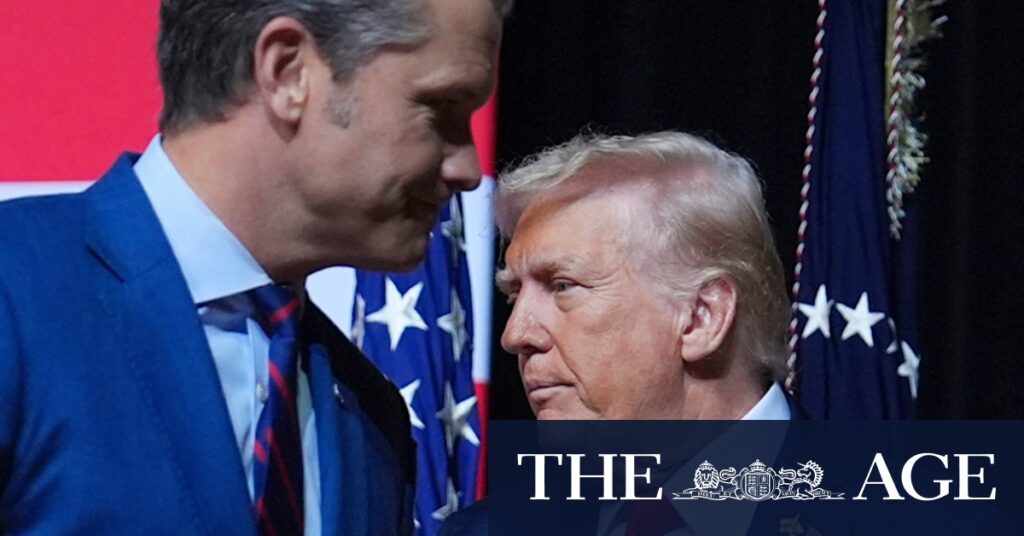
In a fiery address to military leaders, former President Donald Trump and Fox News host Pete Hegseth criticized what they described as a “woke” culture within the U.S. military. Speaking to a room of high-ranking generals and admirals, Hegseth declared the end of the Department of Defense era, advocating for a return to the Department of War, emphasizing a focus on warfighting and preparation.
The speech, delivered at a military event, was marked by a call to restore traditional military values and standards. Hegseth emphasized the importance of “peace through strength,” a doctrine often associated with President Ronald Reagan, and criticized what he sees as the military’s drift towards political correctness and social justice initiatives.
Historical Context and Military Doctrine
The notion of “peace through strength” has deep roots in American military and political strategy. It suggests that a strong military is a deterrent to potential adversaries, a philosophy that has guided U.S. defense policy through various administrations. Hegseth’s speech echoed this sentiment, arguing that the military must focus on readiness and warfighting capabilities to ensure national security.
Hegseth’s reference to the Department of War, the original name of the U.S. Department of Defense until 1947, is symbolic of a shift back to a more aggressive military posture. This reflects a broader debate within defense circles about the balance between military preparedness and diplomatic engagement.
Criticism of ‘Woke’ Policies
Throughout his address, Hegseth criticized what he described as a focus on diversity, equity, and inclusion (DEI) initiatives within the military. He argued that such policies have distracted from the military’s core mission of warfighting. “No more identity months, DEI offices, dudes in dresses,” he declared, emphasizing a need to return to traditional military standards.
This rhetoric aligns with broader conservative critiques of “woke” culture, which they argue prioritizes social issues over competence and merit. Hegseth’s comments suggest a desire to eliminate perceived political correctness from military operations and leadership.
Reactions and Implications
The speech has drawn mixed reactions from military and political figures. Supporters argue that a focus on traditional military values is necessary to maintain U.S. military superiority. Critics, however, warn that dismissing DEI initiatives could undermine morale and cohesion within a diverse military force.
Military historian Dr. James Anderson noted, “While the emphasis on readiness is important, it’s crucial to recognize that diversity and inclusion are also strategic advantages. They enhance the military’s ability to operate in diverse environments and understand global cultures.”
Comparisons to Past Military Reforms
Hegseth’s call for reform echoes past efforts to reshape military culture. In the post-Vietnam era, the U.S. military underwent significant changes to address issues of morale and effectiveness. Similarly, the post-9/11 era saw a reevaluation of military strategies and capabilities.
However, the current debate over “woke” culture is unique in its focus on social and cultural issues. It reflects broader societal tensions over identity politics and the role of the military in addressing these issues.
Looking Forward
The address by Trump and Hegseth signals a potential shift in military policy should Trump return to the presidency. It underscores a commitment to traditional military values and a rejection of what they see as political distractions.
As the military continues to navigate these debates, the balance between maintaining a strong, capable force and embracing diversity and inclusion will remain a contentious issue. The outcome of this debate could have significant implications for U.S. military policy and global strategy.
In conclusion, the speech by Trump and Hegseth has reignited discussions about the direction of the U.S. military. As the nation grapples with evolving security challenges, the military’s approach to culture and readiness will be closely watched by both allies and adversaries.







